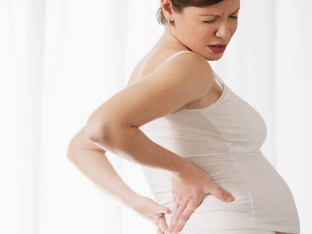Pregnancy is by far the happiest period in a woman's life. And one of the most difficult for the female body. It is during these 9 months that serious changes occur with the woman's body, which affect the work of all its systems and organs. The mother's body to some extent perceives the future baby as a foreign body, and he is forced to adapt to new conditions. In order to maintain pregnancy, the protective reactions of the woman's body are significantly reduced, and this gives the green light to many infectious agents. Pyelonephritis during pregnancy is one of the most common pathologies of this period.
Etiology and clinical picture of pyelonephritis during pregnancy
Pyelonephritis during pregnancy occurs in more than 15% of women who are expecting a baby. Pyelonephritis is an infectious and inflammatory disease of the kidneys, in which the interstitium and tubular apparatus are predominantly affected. Against the background of reduced immunity and an increase in the size of the uterus, which displaces the internal organs, favorable conditions are created for the development of an infectious-inflammatory process. The danger of pyelonephritis lies not only in its effect on the state of the body of a pregnant woman, but also in the fact that the pathology can cause abortion.
Pyelonephritis during pregnancy:
- etiological factors in the development of pyelonephritis during pregnancy;
- symptoms of acute and chronic pyelonephritis during pregnancy;
- features of pregnancy management in patients with pyelonephritis.
Etiological factors in the development of pyelonephritis during pregnancy
Pyelonephritis during pregnancy is a disease that can occur in two forms: acute and chronic. Acute pyelonephritis goes through three stages: serous, acute purulent and necrotic, in each of which there are corresponding changes in the tissues of the kidneys. Chronic pyelonephritis can affect both one and both kidneys, according to the nature of the course, it can be latent, recurrent and progressive. The etiological factors in the development of pyelonephritis during pregnancy are bacteria: Escherichia coli, Proteus, Enterococci, Pseudomonas aeruginosa and others, which enter the organs of the urinary system mainly by ascending.
Symptoms of acute and chronic pyelonephritis during pregnancy
Pyelonephritis most often occurs in the second trimester of pregnancy, which can be explained by significant changes in hormonal levels, as well as the influence of a growing uterus. The clinical picture of acute pyelonephritis during pregnancy is quite specific and is characterized by the following symptoms:
- a sharp rise in temperature to febrile values;
- symptoms of intoxication;
- chills, general weakness, increased fatigue;
- pain in the lower back on the affected side, which may radiate to the abdomen, groin, thigh, and genitals.
Chronic pyelonephritis during the period of exacerbation is manifested by dull pain in the lumbar region, dysuric symptoms, fever to subfebrile values, fatigue and headache.

Peculiarities of pregnancy management in patients with pyelonephritis
Pregnant women diagnosed with pyelonephritis require special attention. Such patients, even during the first visit to the antenatal clinic, should be carefully examined, since it is necessary to make a decision on carrying a pregnancy. It is not recommended to maintain pregnancy in cases where pyelonephritis during pregnancy occurs in women with one kidney, with arterial hypertension or azotemia. If pregnancy persists, antenatal hospitalization of women is carried out at 38-39 weeks of gestation in order to prepare the patient for delivery. Indications for immediate hospitalization during pregnancy are exacerbations of pyelonephritis, the development of arterial hypertension, as well as signs of fetal growth retardation.






Add a comment